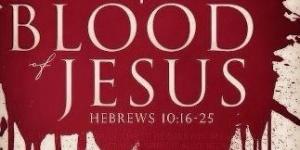United Church of Canada
The United Church of Canada (French: Église unie du Canada) is a mainline denomination[3]and the largest Protestant Christian denomination in Canada, and the largest Canadian Christian denomination after the Catholic Church. In 2011, Statistics Canada reported approximately 2 million people identifying as adherents. The United Church was founded in 1925 as a merger of four Protestant denominations with a total combined membership of about 600,000 members: the Methodist Church, Canada, the Congregational Union of Ontario and Quebec, two-thirds of the congregations of the Presbyterian Church in Canada, and the Association of Local Union Churches, a movement predominantly of the Canadian Prairie provinces. The Canadian Conference of the Evangelical United Brethren Churchjoined the United Church of Canada on January 1, 1968.
United Church of Canada
Église unie du Canada
The official seal of the United Church of Canada
ClassificationProtestant
OrientationMainline
PolityPresbyterian
AssociationsCanadian Council of Churches; World Communion of Reformed Churches; World Council of Churches; World Methodist Council
RegionCanada (plus Bermuda)
OriginJune 10, 1925
Mutual Street Arena, Toronto, Ontario
Merger ofMethodist Church, Canada; two thirds of the Presbyterian Church in Canada; and the CongregationalUnion of Ontario and Quebec
Congregations2,774
Members400,008 registered (baptized) members
Official websiteunited-church.ca
Membership peaked in 1964 at 1.1 million,[5]and has declined since that time. From 1991 to 2001, the number of people claiming an affiliation with the United Church decreased by 8%, the third largest decrease in mainstream Christian denominations in Canada.[7] Church statistics for the end of 2017 showed 400,008 members in 317,051 households under pastoral care.[8][2] As of December 31, 2017, 125,623[9] people attend services in 2,119 communities of faith representing 2,774 congregations on a regular basis.[10]
The United Church has a "council-based" structure, where each council (congregational, regional, or denominational) have specific responsibilities. In some areas, each of these councils have sole authority, while in others, approval of other councils is required before action is taken. (For example, a congregation requires regional council approval before a minister can be called or appointed to the congregation.) The policies of the church are inclusive and liberal: there are no restrictions of gender, sexual orientation or marital status for a person considering entering the ministry; interfaith marriages are recognized; communion is offered to all Christian adults and children, regardless of denomination or age.











